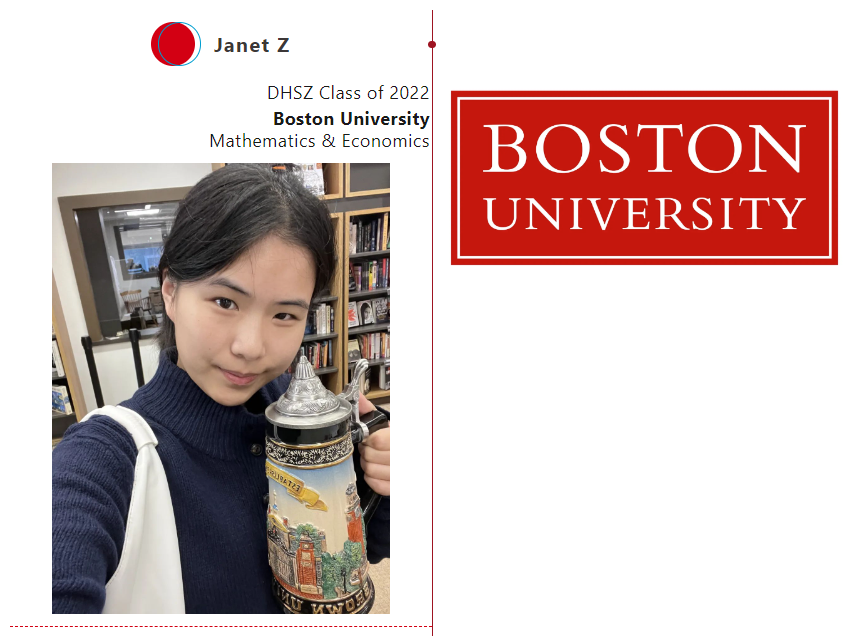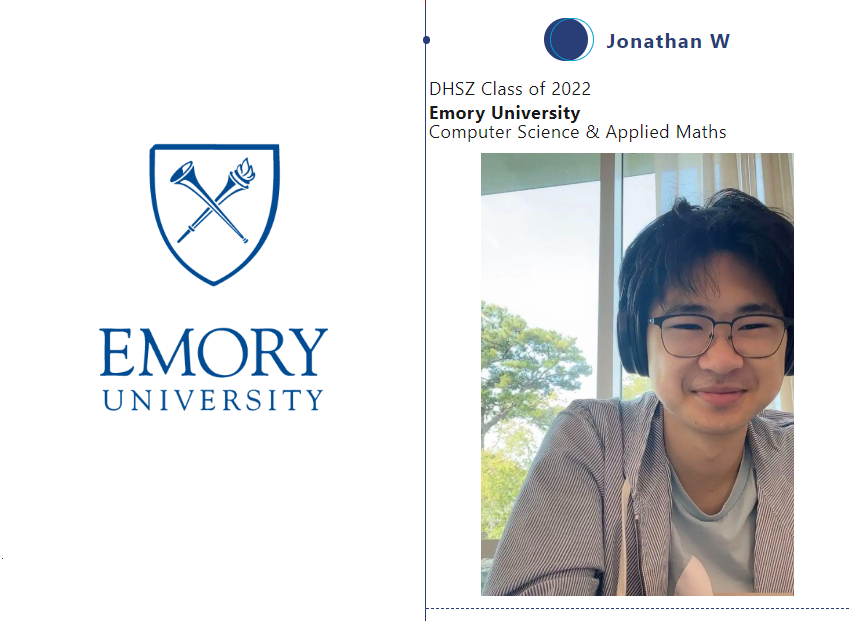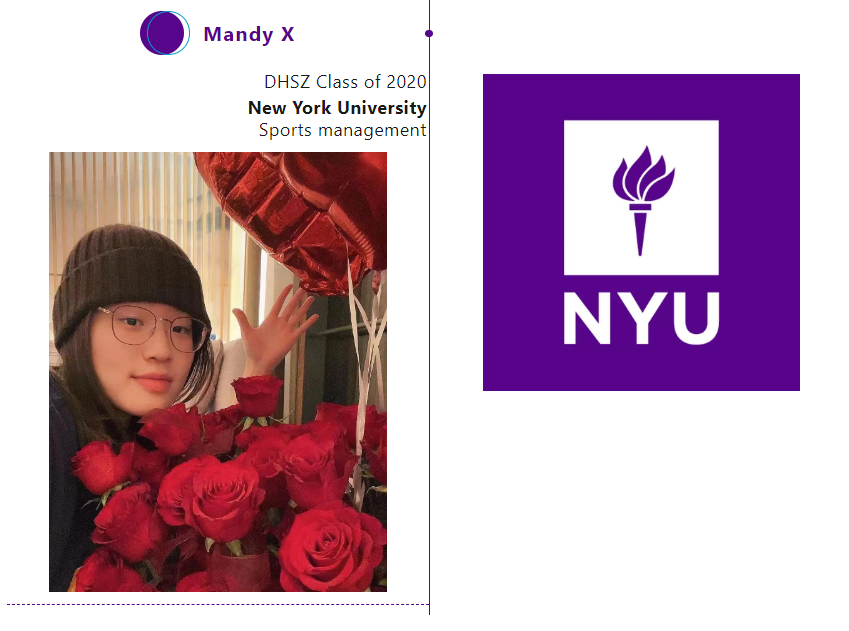Alumni Insights of the ED Pathway

Last month, we brought the great news about the class of 2024 ED offers (click to read). To have a deeper understanding of this matriculation pathway, in today’s ‘Alumni in the Spotlight’, we interviewed three alumni who chose ED at the time, sharing how they chose the ED universities they eventually accepted, and what factors they considered? What are their experiences after attending their dream school, and whether the quality of the school's courses, resources, and campus life meet their expectations? And how would they advise students who also want to apply to ED universities?



Q: What factors were considered when choosing the ED university?
Janet: At that time, as I was preparing my personal statement, I conducted in-depth research on the school, gradually discovering how it aligned with my own aspirations. Firstly, I paid attention to the school's geographical location. Boston, being a relatively safe city and a cosmopolitan metropolis, exhibits broad inclusivity, particularly with numerous Chinese communities. Additionally, it boasts a rich academic atmosphere, with renowned universities like Harvard, MIT, Tufts, Boston College, providing ample opportunities for visits. Beyond the school itself, I also benchmarked against my capabilities. Choosing ED was influenced by its higher acceptance rate compared to Regular Decision (RD) or Early Action (EA). Consequently, I needed to assess whether my standardized test scores and language proficiency met or exceeded the minimum ED admission criteria, determining my confidence in applying to this ideal school. Lastly, I seriously contemplated whether I was willing to forgo other choices for the sake of this particular institution.
Jonathan: When choosing a university, I first looked at the rankings of American universities, major rankings, and the resources available for my chosen major. In addition, I checked the campus environment and the faculty-to-student ratio. Although American universities allow students to choose their majors in their sophomore year, it is preferable to decide on your major direction from the beginning. This way, during university research, you can find a school that matches your chosen major with suitable resource allocations. After considering various factors, I ultimately chose Emory University.
Mandy: My interest in NYU came from a trip to New York where I visited the university and did some in-depth school research when I got back, and I found that all aspects of the university were very much in line with what my ideal university would look like. Firstly, the location, I personally prefer to study in a big city because of the convenience of life and transport. Secondly, I checked out the school’s programmes and saw that there were internships in addition to courses, which made me very interested. Because my professional interest is sports management, the professional academic learning is only a part, and the application of knowledge is more important. Finally, I like to watch NBA games, and there are two NBA teams in New York. Plus there is more access to the core resources of the sports. For example, the teachers in our school could also be staff from professional teams, which allowed us to learn first-hand from them.
In terms of my choice of major, I hope that the profession I engage in later aligns with the field I am passionate about so that I could really commit to it. My time at DHSZ and attending summer school made me decide to apply for a sports-related major. Looking back, with my university studies and current internship at the basketball association, it is indeed what I am passionate about.
Q: Does your dream school meet your expectations?
Janet: I am double majoring in Maths and Economics, and the school's teaching quality is undoubtedly reliable, as most of my professors are professionals who also teach at various universities in Boston. For example, my writing professor graduated from Yale University, and such backgrounds give me confidence in the quality of education I am receiving. Boston University has a strong academic reputation, and it is renowned for its challenging grading standards, ensuring fairness in grading and evaluation.
Regarding the campus, similar to New York University, Boston University does not have a fixed campus but is scattered along city streets, providing a sense of freedom. While the campuses may be slightly distant from each other, safety is not a concern because campus police regularly patrol, and any situations are promptly communicated to all students via email or phone. The university boasts a diverse range of clubs, with recruitment events held annually. Information about these events is disseminated through email, campus notifications, etc., where individuals can go to designated locations where many people promote their respective clubs and organizations. If one misses the recruitment period, various club activities can be found at the student activities center during the semester, such as dance clubs, CSSA, etc. Students can also stay informed about club information through platforms like WeChat, and if interested, they can prepare to apply, with interview processes often announced on these platforms. Moreover, abundant information about Boston University’s social life can be obtained through the university’s social media channels.
Jonathan:Upon arriving at university, I discovered that the campus environment is indeed beautiful and comfortable, providing me with the motivation to study. In terms of my major, initially, I intended to pursue business at Emory University. The major offered rich course selections and abundant resources, and my grades were satisfactory. However, during an internship, I came to realise that I am more inclined towards scientific research. Considering my aspirations for further studies, I decided to reevaluate and shifted my focus to a double major in Computer Science and Mathematics, with a greater emphasis on analysis and applications.
Mandy: Studying at NYU has been quite in line with my expectations, especially regarding my mentioned internship requirements. The school’s internship arrangements align well with the professional requirements and include relevant courses that guide us on applying learned knowledge in a professional work environment and effective communication with others.

In my sophomore year, we had dedicated courses for students to intern, and the university provided on-campus internship resources. The school also organises various events, such as networking sessions with professionals in our field, offering students broader social opportunities. Lastly, during my internship at the basketball association, I had the opportunity to explore different roles. I initially started with marketing-related tasks and gradually ventured into the realm of social media, gaining diverse work experiences and a broader understanding of the entire industry.
Q: What advice do you have for students planning to apply ED?
Janet: If you have great confidence in your academic abilities, you can opt for more competitive schools. However, for those who may not feel particularly strong academically, you can choose your dream school for ED while also considering some relatively conservative options with higher acceptance rates. I still remember my ED application process being quite nerve-wracking. Considering my language scores were not very high, I chose a school that was relatively moderate in terms of competitiveness.
If you are not admitted during the ED, don’t be disheartened. If you are successfully admitted but it’s not your dream school, or you don’t have a strong desire to attend, please refrain from considering tearing up the ED agreement. Doing so can significantly impact your high school’s reputation. Keep in mind that there are opportunities to transfer during the first and second years, and transferring is relatively more favorable than regular undergraduate applications with higher chances of acceptance. So, there’s no need to worry.
Finally, I hope students don’t feel too anxious. Applying to US universities is not solely determined by grades, so don’t hesitate due to concerns about your language scores or other factors. While it’s essential to strive, ensure that your statements are outstanding. How to define outstanding? It means being creative and authentically sharing your background story, as I believe essays are the only way for admission officers to truly get to know you. After all, language scores and Standardized tests can be somewhat rigid, so make sure to showcase your uniqueness in your statements!
Jonathan: It is crucial to have a well-thought-out plan, whether it's academics, language proficiency, or extracurricular achievements, you need to be in control of your own progress. The choice of major is particularly important. If opting for ED, it's essential to select a school that offers ample resources in your desired research field. The earlier you decide on your major, the more specialised courses you can take. While universities have numerous clubs and activities, actively applying and possessing the relevant skills is necessary. If you are indecisive or frequently change your major, you may not accumulate enough credits to apply for these resources. Some course content may not align well with the current market, so participating in extracurricular activities is essential for deepening and expanding your knowledge. Additionally, gaining comprehensive knowledge about the university itself is essential. For example, you can research the courses offered, explore potential projects, clubs, and activities that align with your interests, and understand the campus environment.
Mandy: In the application process, I believe early planning and preparation are crucial. Planning early ensures enough time to undertake various preparations. This includes having a clear and definite application trajectory, knowing the direction you want to pursue, and having a general idea of the schools you're interested in. Once you have these concepts in place, make the most of your high school years by actively participating in activities and pursuing your interests. Applying to US universities involves not only academic achievements but also comprehensive activities and experiences. Therefore, it's essential to develop a long-term plan. For example, I like basketball, so I was on the basketball team for all four years at DHSZ. Whether during school or holidays, there are plenty of opportunities for practical experience. By engaging in projects that interest you, you can better understand your passions and goals.
Furthermore, during the application season, everyone faces a certain level of stress. It's normal to feel anxious, but maintaining a calm mindset is important. Even if your peers start receiving offers, stay composed because the best might still be ahead. Keep a balanced mindset, don't get flustered, focus on what needs to be done, and believe that better results will come later on.





